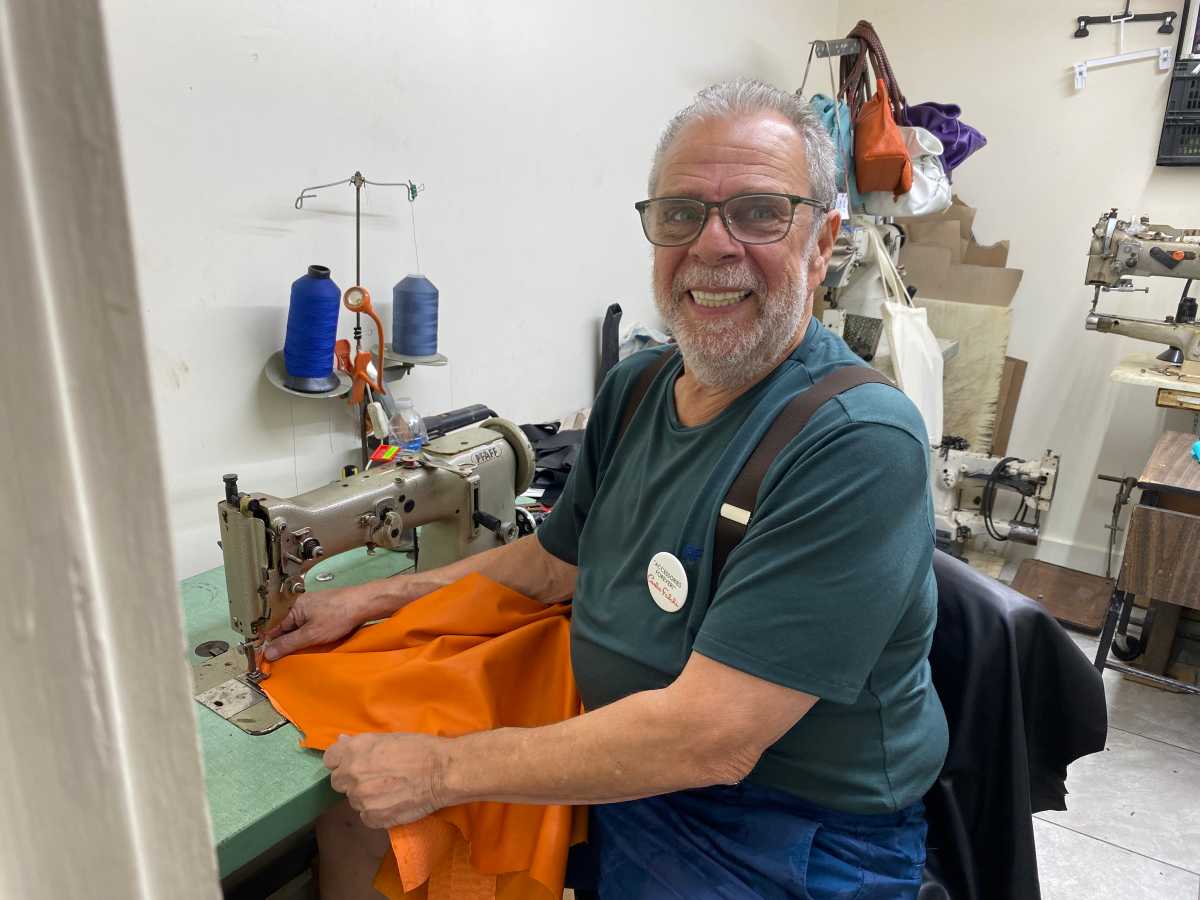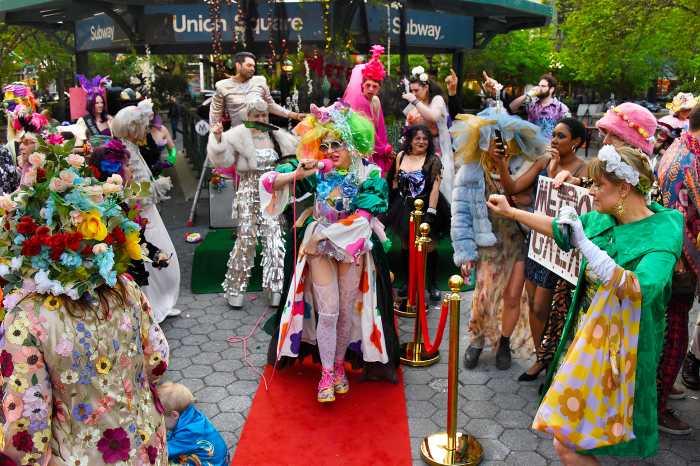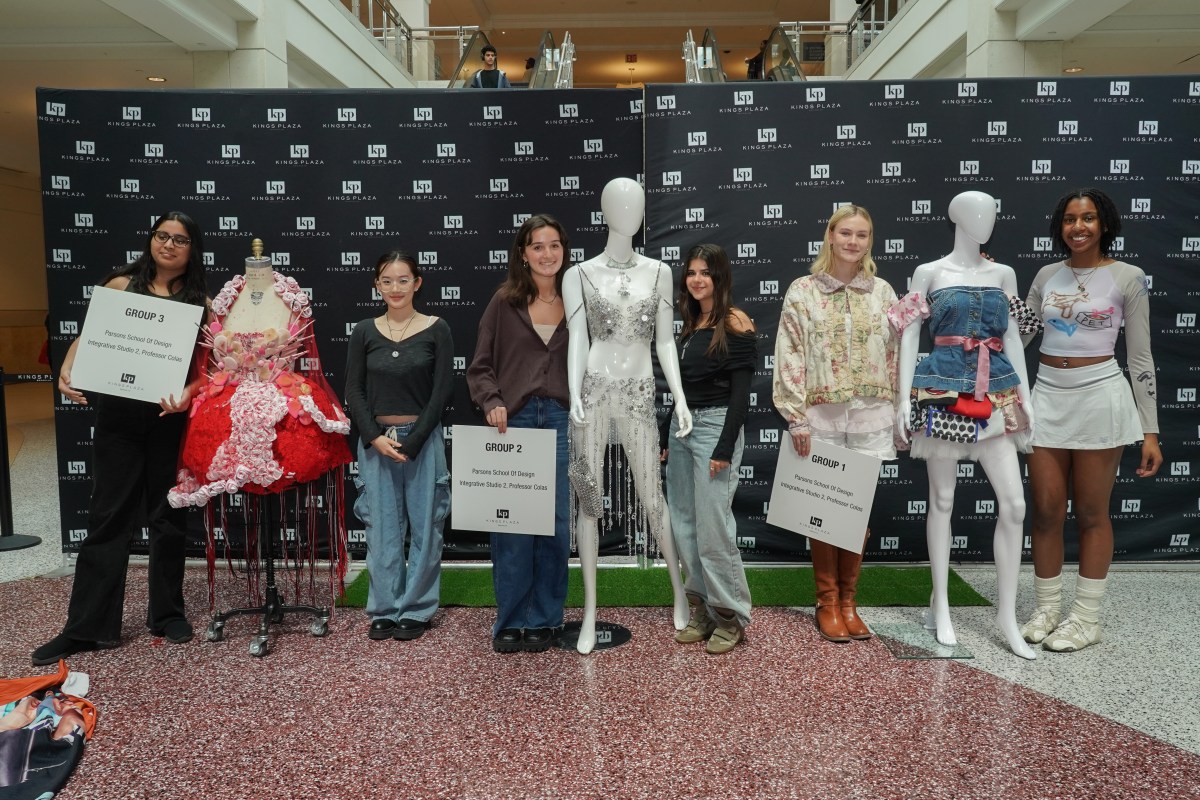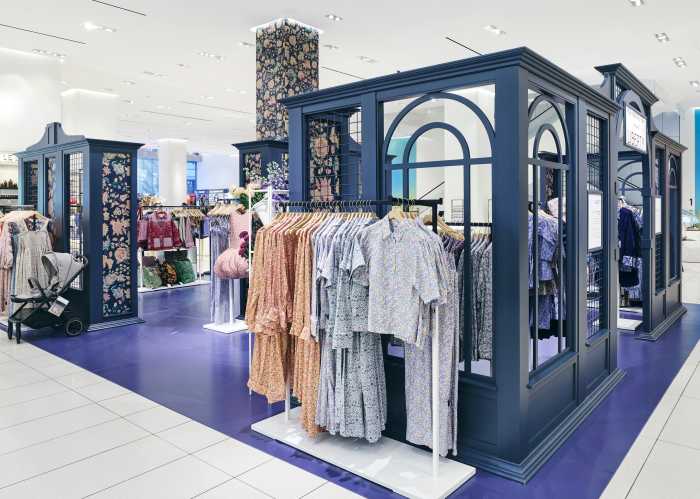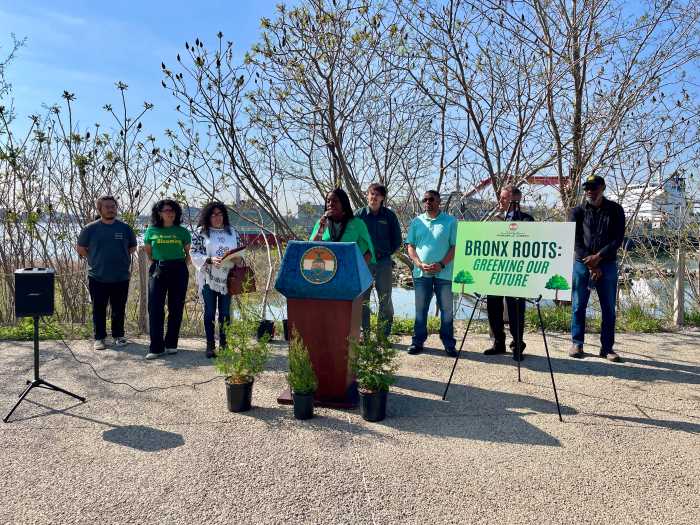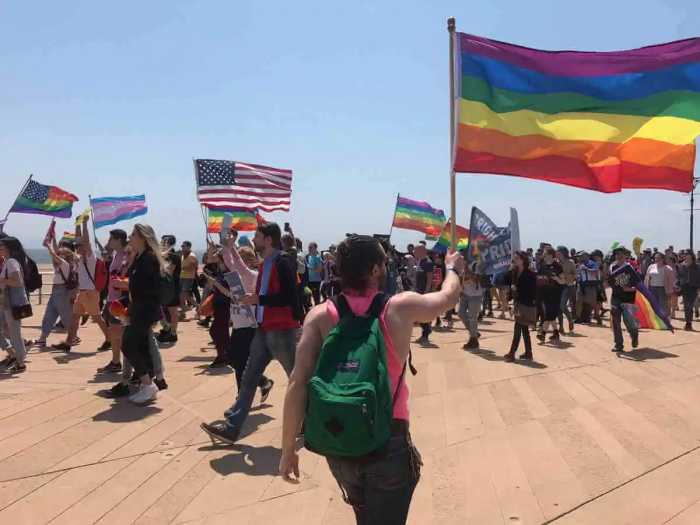Nestled in the heart of Harlem is a boutique company that creates colorful works of art. But not art to hang on a wall, rather, masterpieces that can be worn to accent any outfit.
Carlos Falchi handbags are more than just satchels to hold keys, wallets, gum and candy. Brazilian-born co-founder Marcos Falchi explained that each item is custom-made to create a design that catches the eyes of not only the wearer, but anyone who appreciates art. The bags are sold in a variety of colors, from basic black to a vibrant blue and hot pink.
“We want to make art. One of a kind, one by one. Made by artisans – handmade.” Marcos said.
Although Marcos started the company with his brother, the namesake of Carlos Falchi bags, in 1970, he eventually moved back to Brazil to pursue his own business interests. It was not until Carlos passed away in 2015 that Marcos re-joined the business to continue his brother’s artful tradition. And it was not until last year that he decided —- after some nudging from his America-based staff — to move production from Brazil to Harlem.
“We brought Carlos Falchi bags to Harlem between six months and a year ago. Until then, I was doing it from Brazil,” Marcos, who is also chief design officer for the company, said.
Prices for Carlos Flachi bags range from about $900 well into four-digits. The bags have traditionally been custom-made for movie stars and celebrities including Cher, Jennifer Aniston and Madonna, but Marcos is now looking for other ways to market the collection — including through special orders and partnerships with boutique stores and fellow artists.
“We have partnerships with boutiques,” Marcos said. “We are not in department stores. We were there once upon a time, but the business changed a lot. The department stores don’t cater to this — the one-of-a-kind, one here, one there special orders. It’s not what we do.”
One of the company’s most recent partnerships was with a store called Code Blue in West Hampton. The collection had a corner within the shop, which has a clientele that prefers unique and one-of-kind, artisan items — a seemingly perfect fit for Falchi bags.
Most fashionistas would agree that Falchi bags are glamorous. The designs, which include the hobo, tote, clutch and the signature “butterfly” shapes, are timeless, but always updated with Marcos’ eye for detail and trendspotting.
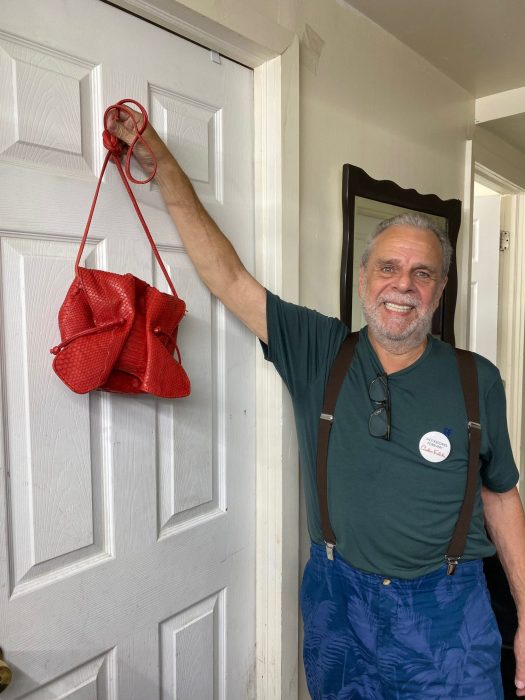
Despite the high-end final product, the Falchi studio itslelf is anything but glamorous. Passersby on bustling 123rd Street at Frederick Douglass Boulevard would likely not guess that a small, cozy designer art studio exists in the basement of an old brownstone that sits on the street.
But in a quaint, four-room studio, packed with friendly designers, cutters and sewers is exactly where production takes place. Although Marcos and his staff have only been in the studio since last year, the company has made an impression on the community. He has a team of weavers and sewers from the neighborhood who take their work home with them — sometimes sewing and weaving while they watch TV — returning days later with the almost-final product.
Ethically Made in the U.S.A
Falchi said he loves working in Harlem, but there is something else he is particularly happy to promote: All of his bags are made in the United States.
“We are very proud this,” Marcos said, getting goosebumps on his arm as he pointed to a bag’s ‘Made in the U.S.A.’ label. “There’s not that many bags of this level of quality and workmanship made in the U.S.A, especially made in New York, especially made in Harlem.”
In addition to being a part of the U.S. economy, Marcos said the company is “not about money” but supporting charities and local artists.
“A big part of our objective is to give back,” Marcos said.
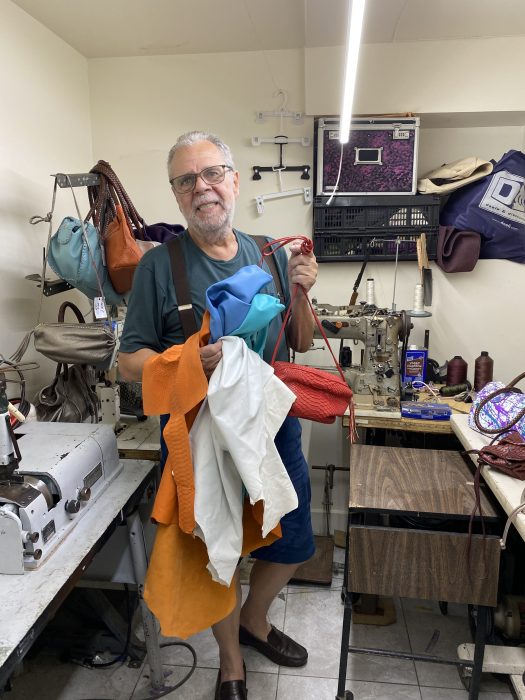
Falchi bags are made out of animal skins, including python and alligator. But Marcos explained that all of the animals are “legally and humanely” raised on farms under the management of the U.S. Fish and Wildlife Service. Farms are located throughout the country, but mostly in the South. They arrive tanned and tagged with information that inspectors can use to trace the animal back to its original farm.
“We maintain those tags, which are traceable,” Marcos said. “So, if you want to know where the skin that was made into a bag came from, we have the number, the date, and how we made it. And we know where the animal that was used came from.”
To learn more about Carlos Falchi bags, visit carlosfalchibags.com or follow the company on Instagram @carlosfalchibags.
Read More: https://www.amny.com/news/



